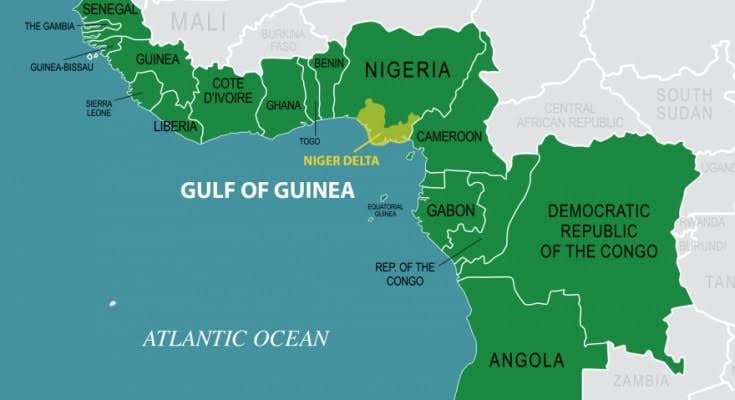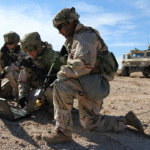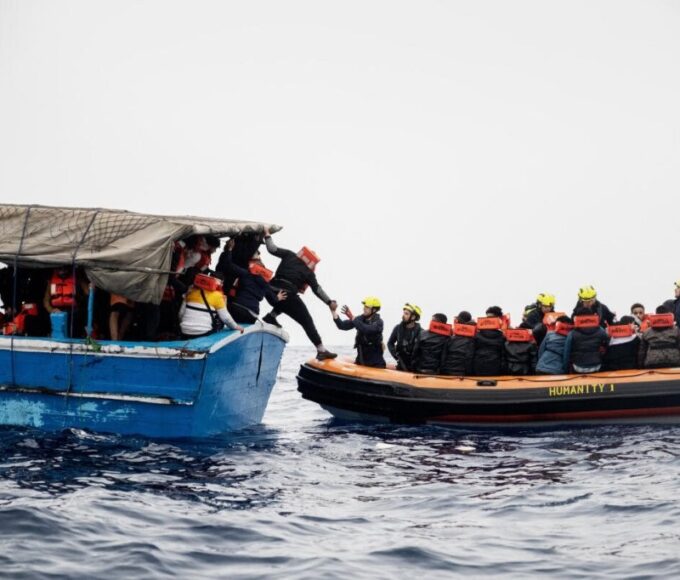PIRACY IN THE GULF OF GUINEA: PROGRESS OR SETBACK?

Piracy in the Gulf of Guinea, spanning from Senegal to Angola, emerged as a significant maritime threat in the early 2000s, driven by economic inequality, political instability, and weak maritime governance in countries like Nigeria, Benin, and Togo. Initially characterized by small-scale thefts and hijackings, incidents escalated by 2010, with 45 reported cases rising to 64 in 2011, often unreported due to inadequate tracking systems.
Nigeria, as the epicentre, saw pirates targeting oil tankers for cargo theft, linked to insurgencies in the Niger Delta and corruption involving government officials and transnational networks.
The economic impact was severe, with Benin’s Port of Cotonou experiencing a 70% trade drop in 2012, and overall costs from stolen goods, security, and insurance estimated at $2 billion annually. This period marked a shift from opportunistic robberies to organized attacks, affecting legitimate trade in Benin, Togo, Côte d’Ivoire, Ghana, Nigeria, and the Democratic Republic of Congo, highlighting the region’s vulnerability amid oil wealth and poverty.
By the late 2010s, piracy peaked, with 123 incidents in 2020, primarily involving kidnappings for ransom, distinguishing GoG piracy from Somali models focused on hijackings.
Nigeria remained prominent, with attacks extending up to 300 nautical miles offshore, often violent and targeting senior crew from vessels in Equatorial Guinea and Cameroon waters.
The International Maritime Bureau (IMB) noted over 80% of global crew kidnappings in the GoG by 2019, with 130 seafarers abducted in Underlying drivers included youth unemployment, corruption, and illegal fishing depleting local resources, exacerbating tensions in coastal communities of Ghana and Nigeria. This surge prompted UN Security Council attention, leading to resolution 2039 in 2012 urging regional strategies, as the threat disrupted oil supplies and global markets.
REGIONAL AND INTERNATIONAL RESPONSES
In response, the 2013 Yaoundé Code of Conduct established a maritime security architecture, dividing the GoG into five zones with coordination centres for information sharing among 25 West and Central African nations. Nigeria’s $195 million Deep Blue project enhanced surveillance with drones, vessels, and command systems, while joint patrols involving Ghana, Cameroon, and Togo improved deterrence. International efforts, including UNODC support for prosecutions and EU-backed initiatives, led to convictions in Nigeria and Togo in 2021, contributing to a decline. The Maritime Domain Awareness for Trade – Gulf of Guinea (MDAT-GoG), operated by France and the UK, facilitated real-time reporting, as seen in the 2016 MT Maximus recapture involving six countries. Liberia emphasized cross-border cooperation to combat piracy and illegal fishing, bolstering regional stability.
Post-2020, incidents dropped sharply: 45 in 2021, 19 in 2022, and 22 in 2023, attributed to enhanced naval patrols, international deployments, and regional cooperation. Nigeria’s convictions and increased patrols deterred attacks, while Ghana reported reduced maritime crimes through robust border stabilization with Togo. The IMB highlighted a 32% overall decrease in 2021, with fewer kidnappings and hijackings. However, crew safety remained at risk, with 1,726 seafarers affected in 2017 alone, underscoring persistent violence. Successes like the 2023 Monjasa Reformer incident, tracked by MDAT-GoG, demonstrated improved situational awareness. This period suggested progress, though underlying issues like poverty in Niger Delta communities lingered.
By 2024, the decline continued modestly, with 18 incidents reported versus 22 in 2023, but concerns grew over crew kidnappings, accounting for 75% of global cases. Key events included the January kidnapping of nine crew from the Hana I off Equatorial Guinea and five from a Panama-flagged ship in Cameroon. The IMB noted 33 global incidents in Q1 2024, with the GoG as a hotspot alongside the Singapore Strait. Nigeria and Ghana focused on capacity-building, but weak prosecutions only three trials in a decade despite 115 incidents in 2020 hindered deterrence. Liberia’s cross-border efforts with neighbours highlighted ongoing regional collaboration amid persistent threats.
As of August 2025, reports indicate a potential setback, with Dryad Global noting a 30% surge in GoG incidents, and IMB reporting 12 cases in the first half, comprising 87% of global kidnappings. Two incidents in late January off Nigeria involved kidnappings and armed boardings over 100 nautical miles offshore. However, some analysts debate the decline’s sustainability, citing pirates’ tactical adaptations and reduced reporting. Ghana’s defence minister announced piracy’s decimation through patrols, while UNODC supported prosecutions across the region. Weekly MDAT-GoG reports from 2025 show steady monitoring, but violence persists in Nigerian waters.
Despite progress, setbacks stem from entrenched issues: corruption, youth unemployment, and illegal fishing in Ghana and Nigeria fuel recruitment into piracy networks. Weak enforcement capacity in individual states like Togo and procedural delays in prosecutions undermine efforts.
Overall, the GoG has seen progress through regional frameworks like the Yaoundé Architecture and international aid, reducing incidents by 90% from 2020 peaks. Yet, 2025’s reported surge signals setbacks, demanding sustained investment in economic development, legal reforms, and maritime awareness in Nigeria, Ghana, and beyond. Addressing root causes like inequality and corruption is essential to prevent resurgence, as emphasized in Atlantic Council discussions. With continued cooperation, the region could achieve lasting security, but without it, piracy risks reversing hard-won gains.
King Richard Igimoh, Group Editor ALO
King Richard Igimoh, Group Editor African Leadership Organisation is an award-winning journalist, editor, and publisher with over two decades of expertise in political, defence, and international affairs reporting. As Group Editor of the African Leadership Organisation—publishers of African Leadership Magazine, African Defence & Security Magazine, and Africa Projects Magazine—he delivers incisive coverage that amplifies Africa’s voice in global security, policy, and leadership discourse. He provides frontline editorial coverage of high-profile international events, including the ALM Persons of the Year, the African Summit, and the African Business and Leadership Awards (ABLA) in London, as well as the International Forum for African and Caribbean Leadership (IFAL) in New York City during the United Nations General Assembly.
Recent Posts
Categories
- Air & Aerospace16
- Border Security15
- Civil Security4
- Civil Wars4
- Crisis5
- Cyber Security8
- Defense19
- Diplomacy19
- Entrepreneurship1
- Events5
- Global Security Watch6
- Industry8
- Land & Army8
- Leadership & Training5
- Military Aviation5
- Military History27
- Military Speeches1
- More1
- Naval & Maritime9
- Resources2
- Security12
- Special Forces1
- Systems And Technology9
- Tech6
- Uncategorized3
- UNSC1
- Veterans6
- Women in Defence9
Related Articles
THE RED SEA AND HORN OF AFRICA: HOTSPOTS OF MARITIME CONFLICT
By December 2025, the Red Sea and the Horn of Africa sit...
ByKing Richard Igimoh, Group Editor ALODecember 23, 2025NAVAL FORCES EMERGE AS LIFELINES IN GLOBAL HUMANITARIAN RESCUE MISSIONS
Modern navies are increasingly defined not only by their combat power but...
ByKing Richard Igimoh, Group Editor ALONovember 20, 2025THE STRATEGIC IMPORTANCE OF DJIBOUTI’S PORTS
Djibouti, a small nation located on the Horn of Africa, commands an...
ByKing Richard Igimoh, Group Editor ALOOctober 21, 2025SUBMARINE PROGRAMMES IN AFRICA: PRESTIGE OR NECESSITY?
Africa’s naval power has long rested on surface vessels, yet the rise...
ByKing Richard Igimoh, Group Editor ALOSeptember 23, 2025












